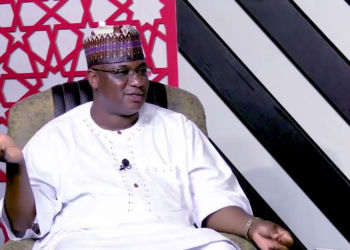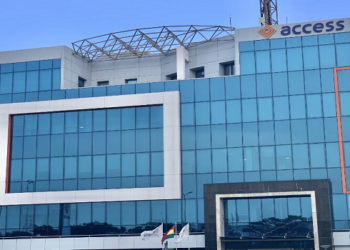Story highlights
- Sam Onukwue, Chairman of the Association of Securities Dealing Houses of Nigeria (ASHON), discusses market development issues, highlighting the importance of banks’ recapitalization to compete globally and support Nigeria’s economic growth.
- Onukwue commends the Securities and Exchange Commission (SEC) for new rules to regulate private companies raising funds in the primary market, aiming to protect investors and ensure compliance.
- He emphasizes the role of digital innovation in attracting younger investors and the importance of professional investment advice to navigate risks and maximize returns in the Nigerian capital market.
Mr. Sam Onukwue is the Chairman of the Association of Securities Dealing Houses of Nigeria (ASHON) and a Fellow of the Chartered Institute of Stockbrokers (CIS).
In this interview with Nairametrics, he spoke on a range of market development issues including the current recapitalization process in the banking industry.
Nairametrics: Should we expect an active Primary Market any moment from now, following the directive of the Central Bank of Nigeria (CBN), that banks should recapitalize?
Sam Onukwue: The primary market has been relatively inactive over the years because of the general lull in the economy. Potential companies that would have floated initial Public Offerings (IPOs) were reluctant for fear of undersubscription.
To worsen the situation, many investors have lost money in the primary market due to the failure of companies to list their shares in the secondary market after capital raising in the primary market.
However, with the directive on banks’ recapitalization, activities shall bounce back in the primary market.
Nairametrics: What is your response to the new rule of the Securities and Exchange Commission (SEC) for private companies that intend to source funds in the Primary Market?
Sam Onukwue: I commend the new management of SEC, under the leadership of Dr. Emomotimi Agama for the introduction of the new rules for private companies that apply to fundraising in the primary market. The new rules could not have come at a better time.
The rules outline penalties for non-compliance, including fines starting from N10 million and additional daily penalties.
Private companies must adhere to stringent requirements, such as being duly incorporated and having a minimum of three-year operational track record, with a cap of N15 billion on fundraising within one year.
We believe that the punitive rules if enforced will curtail abuse of capital raising in the primary markets and ensure adequate protection of investors.
Nairametrics: What was your immediate reaction to the CBN’s announcement that banks should recapitalize?
Sam Onukwue: I believe that the Central Bank of Nigeria (CBN), has done the right thing if our banks should compete in the global market, including the African Continental Free Trade Area (AfCFTA).
With the current inflation rate and exchange rate, it has become almost impossible for our banks to operate in line with the global minimum capital threshold without recapitalization.
Besides, the level of risks that banks bear today has significantly been exacerbated by the current macroeconomic vagaries. I also believe the apex bank is repositioning the banks to be o able to finance the envisaged $1 trillion economy in the next 7 to 8 years.
In light of the foregoing, I do not doubt that the apex bank is fair enough to base the new share capital on the level of authorization of each bank. The next thing is for every bank to justify why it should continue to operate in the banking sector.
We must admit that various external and domestic factors have significantly impacted the Nigerian economy, necessitating an increase in minimum capital requirements for banks.
This measure aims to fortify their capital base, enable them to absorb unforeseen losses and sustain their role in fostering growth and development.
If Nigeria is determined to attain a one trillion-dollar economy by 2026, recapitalization of banks is the way to go.
Nairametrics: What are the implications of Right Issues as an option for capital injection by banks?
Sam Onukwue: Yes, Right Issue is one way to give the existing shareholders the privilege of enhancing their shareholdings, before reaching out to outsiders.
It will protect the company from a hostile takeover if the shareholders take their rights.
But it is a double-edged sword if many do not participate. Although such shareholders can trade their rights, it may open doors for a takeover.
Nairametrics: What about Public Offer?
Sam Onukwue: A Public Offer enables a company to attract new shareholders while it creates an opportunity for the existing shareholders to increase their holdings.
In this era of electronic offering, millennials, Gen Z and other categories of young ones may participate if the offer is well-publicized. This capital-raising technique will enable the banks to raise huge amounts of money.
A Public Offer has the capacity to enhance a bank’s visibility and boost its reputation.
It also ensures transparency and there are disclosures that banks must comply with when seeking approval from the regulatory authorities. This enhances investor confidence because the processes are transparent.
Nairametrics: How can the banks attract Millennials, Gen Z, and Gen Alpha under the recapitalization programme?
Sam Onukwue: The gateway to attracting these categories of investors is to deploy digital innovation for convenience. We refer to Millennials, Gen Z, and Gen Alpha as digital natives who prefer seamless online experiences and mobile banking solutions. Every bank invests in user-friendly mobile apps.
By this, banks can cater to the tech-savvy preferences of these generations. Deployment of technology was a paradigm shift three years ago when MTN deployed an electronic Initial Public Offering (e-IPO) and it was successful.
Fortunately, NGX in its continuous efforts to enhance investors’ access and experience in the market is working on deploying a gateway that will attract this category of tech-savvy investors.
Nairametrics: Does the Capital Market in Nigeria have the capacity to absorb banks’ offer to raise against huge amounts?
Sam Onukwue: I believe the answer is in the affirmative. Absorptive capacity has to do with the possibility that a quantum of money can be raised from the market. This is about investor appetite for the company’s shares, Investors buy into the future of a company.
The current performance of a company is historical.
By virtue of their services, banks occupy a very key position in every economy. They provide an efficient payment system and enable individuals and corporate entities to transact businesses.
Investors are comfortable with a bank that operates professionally and has a track record of corporate governance, the trajectory of profitability, and shareholder value through regular payment of dividends and capital appreciation of its shares in the secondary market amongst others.
Investors also need advice from stockbrokers on the banks that can meet their investment objectives and risk tolerance. These are some of the basic factors that can attract investor patronage of a company’s shares.
The current financial performance of many quoted banks on NGX is encouraging. Investors will not hesitate to invest in the shares of a company that has strong fundamentals.
Share prices of many quoted banks on NGX are undervalued, hence high net-worth investors are out there to increase their portfolios with bank shares.
Nairametrics: As a Trade Group, what is the main focus of ASHON in the current challenging operating environment?
Sam Onukwue: ASHON has always ensured that its members operate professionally, while the Association collaborates with the capital market regulators, operators, and investors in the ecosystem.
When the former Governor of the Central Bank of Nigeria (CBN), Professor Chukwumah Soludo, announced that banks in Nigeria should have a minimum capital base of N25 billion by the end of 2005, our members served as stockbrokers to the issues, issuing houses, and other areas of fundraising for the banks.
Many lessons were learned at the end of the exercise. Our members have the capacity to work with banks in various ways to meet the new requirements of recapitalization.
Nairametrics: Can adherence to the Sustainability Policy attract young ones to a company?
Sam Onukwue: Millennials, Gen Z, and the like are highly interested in a company that is associated with environmental sustainability.
Such a company offers green investment and places a premium on financial literacy and community development as part of its community social responsibility (CSR).
The use of data analytics and Artificial Intelligence (AI) can also encourage young ones to invest in a company.
Nairametrics: Would you encourage investors to take a position in the market at the moment?
Sam Onukwue: There is no time that an investor cannot take a position in the securities market. Many investors have lost huge amounts of money by relying on their intuition or consulting unqualified investment advisers.
Investment in any asset class requires a lot of variables, including an investor’s investment objective, risk tolerance, sources of funds, and time horizon, amongst others.
Investment is a trade-off of risk and return, whereby an investor aspires to post the highest return at the lowest risk. This is achievable if proper analysis is done by certified investment advisers. ASHON members engage investors for timely investment advice on risk aversion measures.
Nairametrics: What is your advice to investors on risk-aversion measures?
Sam Onukwue: In every risk, there is an opportunity. The same applies to investment. It is all about understanding and deploying appropriate investment strategies.
It’s not a game of one-size-fits-all. Contacting a professional investment adviser, especially, a stockbroker, is in itself a risk-aversion measure. Investment professionals profile their clients as a precondition for advice on the appropriate investment opportunities.
There is no asset without a risk element. A government bond is a fixed-income security, called gilt-edged. Although it is classified as risk-free, this seems theoretical as the inflation rate and exchange rate can impact returns on this asset class.
Nairametrics: How would you describe investor confidence in the Nigerian Capital Market at the moment?
Sam Onukwue: The Nigerian capital market, like other sectors of the economy, has experienced its low and high points in recent times.
But it is not an overstatement to say that our market, has bounced back from the shocks that erupted in 2008. There is no doubt that investor confidence is upbeat. Indigenous shareholders
control no less than 87 % of Nigerian Exchange Limited (NGX), while foreign portfolio investors account for 13 %. This is a paradigm shift.
I must also say that stockbrokers’ role as a catalyst of financial intermediation has been recognized by the Bola Tinubu Administration as leaders shaping Nigeria’s financial system—the Minister of Finance and Coordinating Minister of the Economy, Mr. Wale Edun along with the Governor of the Central Bank (CBN), Mr. Olayemi Cardoso, are seasoned stockbrokers.
We have five securities exchanges in the country now, in contrast to only one, and of these are three commodities exchanges.
Market regulation has increased significantly and investors have opportunities to buy many financial assets. Beyond the traditional equities, we have mutual funds, exchange-traded funds (ETP), bonds, derivatives, and a host of others.
Nigeria is today the leading debt capital market (DCM) in Africa with its thriving fixed income.






















